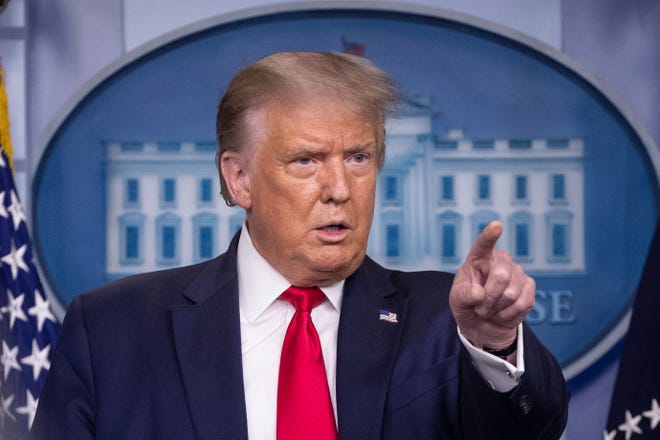Opinion: President Trump will face prosecution after leaving office
November 17, 2020
As Donald Trump enters the twilight hours of his presidency, relaxation and unscrutinized golfing trips may not be the only thing awaiting on the other side. There’s also the possibility of prison time.
Over the course of his four-year tenure, Trump has accumulated several nontraditional misdemeanors and crimes that have drawn criticism from his opposition and skepticism from his supporters.
In December of 2019, the House of Representatives impeached Trump on charges of abuse of power and obstruction of justice, making him just the third president in history to be impeached. The abuse of power charge was a response to Trump allegedly using his power to solicit Ukrainian aid in launching an investigation into President-elect Joe Biden.
After learning about the efforts to get him impeached, BBC explains that he was accused of obstruction of justice by refusing to cooperate with the impeachment proceedings.
Aside from the impeachment, Trump has also dabbled in other misdemeanors, like tax fraud. In the series of presidential debates, Biden made it clear that Trump has gone to remarkable lengths to not release his taxes. While presidents are not legally obliged to release their tax returns, the action has almost become a tradition and sign of transparency, as all presidents in the last 30 years have released personal tax returns.
Furthermore, the New Yorker confirms that Trump has had 26 accusations of sexual misconduct and an estimated 4,000 lawsuits that decorate his criminal resume.
Despite the mountain of evidence piled against Trump, he remains safe from legal action. He’s protected by the 1973 Department of Justice ruling that a sitting president is constitutionally immune from criminal prosecution. But, as soon as he leaves office on Jan. 20, 2021, it’s a completely different ball game.
According to the Intercept, an investigative publication, all the laws Trump has potentially broken in his interactions with Ukraine and China could land him 10 years in prison.
So, considering Trump’s extensive criminal record, how likely will he serve prison time? Actually, there’s a good chance. To understand why, it’s important to take a historical perspective. The constitutional pardon power grants the president the ability to pardon any federal offense. Often, the only way for a criminal president to get rid of prison time is by getting the pardon from his or her successor. For example, in 1974, Richard Nixon, the perpetrator of the Watergate scandal, was pardoned by successor Gerald Ford. While this measure may have killed Ford’s hopes of reelection, Nixon was released scot-free.
However, The Guardian reports that Biden has already pledged that he won’t pardon Trump.
With no possibility of a presidential pardon, President Trump will probably be held accountable for his wrongdoings in office.








